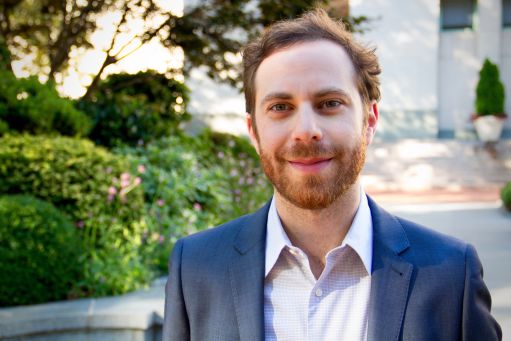The Human Experience of COVID-19
Sandra Matz and Daniel Ames share insights into why individuals experience the same pandemic in different ways.
As the global pandemic enters its sixth month, it has not only upended the economy, but altered the daily lives and routines of millions of people.
Sandra Matz, the Daniel W. Zalaznick Associate Professor of Business, and Daniel Ames, the Ting Tsung and Wei Fong Chao Professor of Business, addressed the impact of these changes and shared their insights about why people experience aspects of the pandemic, such as social distancing and working from home, in different ways.
Ames described a pattern of low trust and cynicism among Americans toward one another.
“Many Americans came into this pandemic with low levels of trust for their fellow citizens,” Ames says. “Our pre-pandemic trust is acting like a lens through which we view this moment. Both cynics and optimists are seeing what they expect to see in how others are acting.”
Ames discussed emerging findings on how the pandemic has affected interpersonal conflicts, noting that working from home may offer some a respite from office tensions.
“People working from home are having different experiences with conflict,” Ames says. “Among those saying conflict with work colleagues has improved, a large share report that having less contact with colleagues is helping.”
Matz discussed her recent work comparing the effect of COVID-19 on mental health in the United States and Germany.
Using data collected in 2019 and 2020 from Moodpath, an app that tracks peoples’ moods throughout the course of a day, Matz found that during the first few weeks of the pandemic in the US there was an initial dip in moods followed by a quick recovery to nearly the same levels as in the months leading up to the outbreak.
“My expectation was that moods were going to drop and depression would increase due to the pandemic,” Matz says. “People are coping relatively well.”
Matz's research notes, however, that there was not as much of a rise in moods or a decline in levels of depression this year during the spring and early summer when compared to 2019.
But the data tells a different story in Germany, where moods continued to steadily improve despite the pandemic.
Matz attributes the German sense of resilience to general confidence in the government’s response to the crisis, which fostered a sense of trust among people.
Drawing on her past research, which studies how the places where we spend time can affect our mental health, Matz presented new findings on the impact of mandated social distancing as well as how the blurring of workplaces and home can affect well-being.
More Webinars

Do Virtual Communications Curb Creativity?
Assistant Professor of Marketing at Columbia Business School Melanie Brucks and Jonathan Levav, a professor of marketing at Stanford’s Graduate School of Business, discuss the findings in their new paper on the shift away from in-person interaction at work and how it affects innovation.

The Value of Authenticity in our Professional and Personal Lives
From Facebook to the boardroom, both corporations and individuals are called on to be our “authentic” selves, but what does authenticity really mean and why is it so powerful?

Increasing Connections With Others
Professor Michael Slepian discusses his latest research on how to foster feelings of inclusion, belonging, and authenticity at the workplace and the world at large.

2020: A Test of Leadership
A look at what it meant to be a leader in a year unlike any other.
Rise to the challenge.
The COVID-19 pandemic has changed the world of business, while bringing historical inequities and injustice into sharp relief.
Subscribe to Leading Through Change to receive the latest insights from Columbia Business School to help you navigate this unprecedented time.

